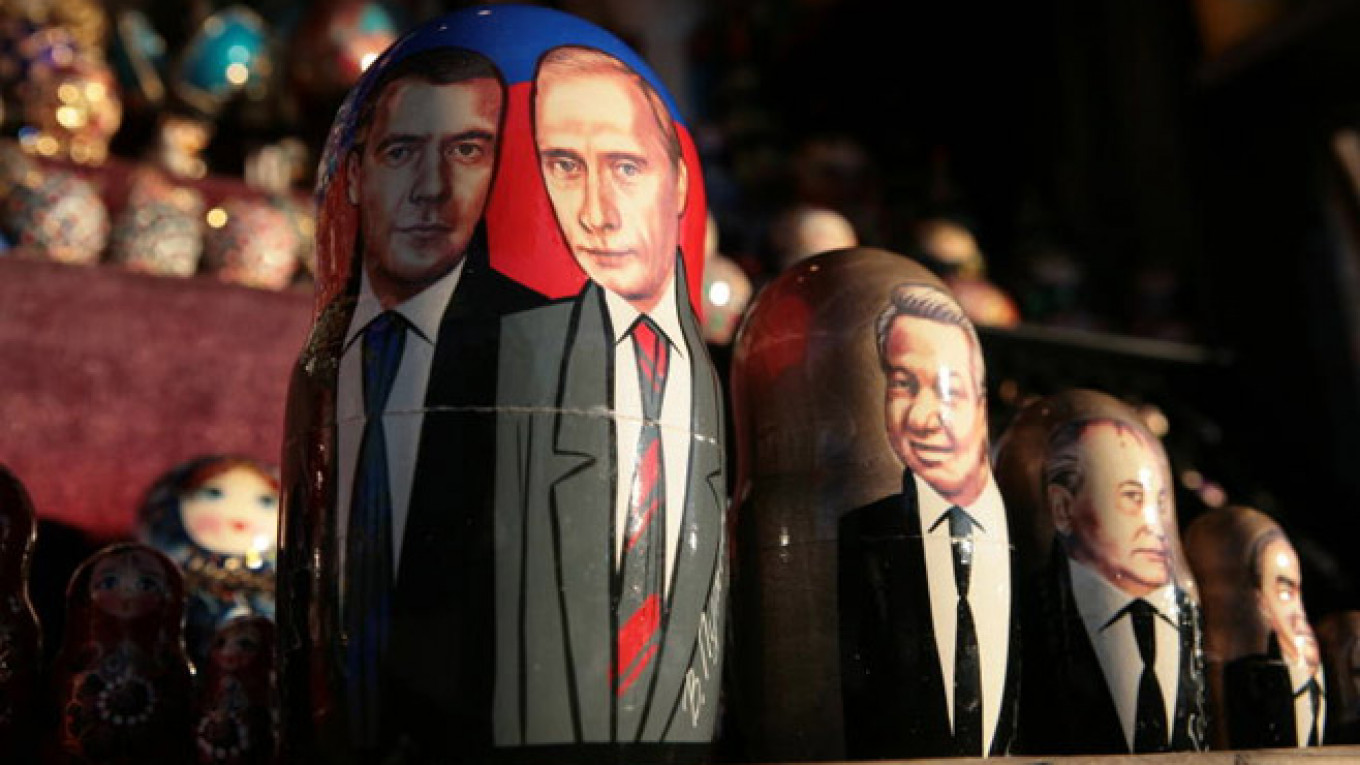The murder of opposition leader Boris Nemtsov was a reminder — if anyone needed it — that the transition to democracy in Russia has failed.
That transition began 30 years ago, on March 10, 1985, when Mikhail Gorbachev was appointed general secretary of the Communist Party of the Soviet Union.
Gorbachev remains a controversial and enigmatic figure. In the West he is celebrated as the man who brought the Cold War to an end. In Russia he is despised as the leader whose actions led to the destruction of his country.
The collapse of the Soviet Union in 1991 meant that Russia was no longer a superpower, equal to the United States, and feared and respected around the world. Gorbachev's attempted reforms brought about the implosion of the planned economy, which had delivered security and predictability for Russians.
Gorbachev's reform agenda began with modest efforts to improve productivity and cut alcohol consumption. Gorbachev loosened up press controls to put pressure on bureaucrats who were resisting his reforms. When that didn't work, he went one step further, introducing competitive elections in 1988.
To Gorbachev's dismay, the elections to the Congress of People's Deputies were won not by communist reformers in his own mold, but by an assortment of democrats and nationalists — especially in the republics of the Caucasus and the Baltic states.
This produced a political deadlock that rapidly made the Soviet Union ungovernable.
While his reforms were blocked domestically, Gorbachev was able to move ahead on the international front, scoring some remarkable successes — the elimination of intermediate-range nuclear missiles in 1987, the withdrawal of Soviet troops from Afghanistan in 1989, and the signing of a comprehensive strategic nuclear arms treaty in 1991.
He refused to use force to keep Eastern Europe under Soviet control, and this made possible the fall of the Berlin Wall, and the ousting of communist rulers throughout the region.
We know very little about Gorbachev's evolution as a reformer. Did he nurture reformist ideas during his slow rise through the ranks of the stultifying communist bureaucracy? Or did he have an epiphany when he entered the Politburo and was given the data showing that the Soviet system was broken?
Boris Yeltsin came to power after the collapse of the Soviet Union, and he is typically seen as the "father" of Russian democracy. However, as Gorbachev's biographer Archie Brown points out, all the major democratic institutions of Russia of the 1990s were in fact introduced under Gorbachev — a free press, competitive elections, an elected Congress and an elected president.
While Gorbachev deserves praise for bringing democracy (briefly) to Russia, he cannot claim credit for the breakup of the Soviet Union. It was Yeltsin, in the face of Gorbachev's intransigence, who championed the cause of national independence as a logical consequence of democratization. How, then, will history judge Gorbachev?
Scholars are not rushing to judgment. There has been no biography of Gorbachev published since the one written by Archie Brown back in 1997. One reason is that it is very hard to disentangle Gorbachev's achievements from his failures.
It is too early to say whether the reforms he set in motion will eventually result in a Russian state that is better governed, and a more responsible member of the international community, than its Soviet predecessor.
With fighting raging in east Ukraine, and the indelible images of Boris Nemtsov's body lying on a Moscow bridge, it looks like Russians have turned full circle, back to their Soviet past and away from Gorbachev's reforms.
Peter Rutland is professor of government at Wesleyan University.
A Message from The Moscow Times:
Dear readers,
We are facing unprecedented challenges. Russia's Prosecutor General's Office has designated The Moscow Times as an "undesirable" organization, criminalizing our work and putting our staff at risk of prosecution. This follows our earlier unjust labeling as a "foreign agent."
These actions are direct attempts to silence independent journalism in Russia. The authorities claim our work "discredits the decisions of the Russian leadership." We see things differently: we strive to provide accurate, unbiased reporting on Russia.
We, the journalists of The Moscow Times, refuse to be silenced. But to continue our work, we need your help.
Your support, no matter how small, makes a world of difference. If you can, please support us monthly starting from just $2. It's quick to set up, and every contribution makes a significant impact.
By supporting The Moscow Times, you're defending open, independent journalism in the face of repression. Thank you for standing with us.
Remind me later.






